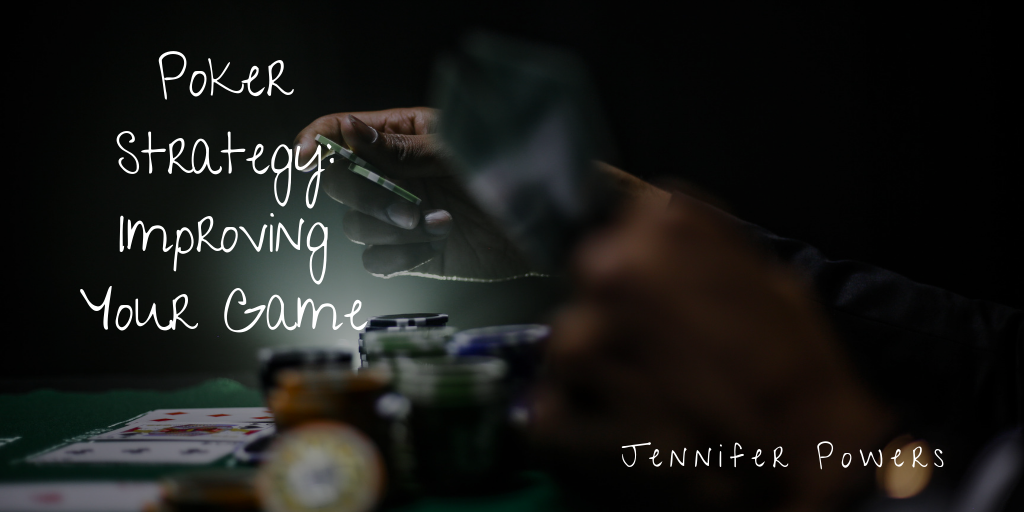A lot of people tend to think of poker as a game of luck, but that couldn’t be further from the truth. You may not have any control over the cards that are dealt, but you do have control over what you do with them, and so do your opponents. If you’re getting started playing poker and you want to improve your strategy, here are a few tips.
Know When to Fold ‘Em
A good poker player folds more often than not. That might not sound very exciting to new players who love the idea of going all in on a killer hand, but those hands don’t come up very often. You can’t lose if you don’t play, so don’t be shy about folding if you don’t know what else to do.
Think in Ranges Instead of Hands
Instead of looking at your hand you have, consider the range of hands that you could have. You might not have been dealt a good hand right away, but if you look at the community cards or the cards that you could be dealt, what you have could have potential. Keep in mind that the same thing goes for your opponents, so be prepared to fold if another player suddenly gets really confident.
Be Cautious When Bluffing
Everyone has heard stories about a legendary poker player who can bluff their way to victory, but that is a very dangerous strategy. There is more than likely, always someone that will call your bluff, so be cautious when bluffing, and know when your best opportunity is.
Stick to a Strategy
You’ll eventually develop a strategy after you’ve spent some time at the poker table. Once you do, stick with it as often as you can. Deviating from it will usually hurt you, especially if you have other players who figure out what you’re doing. If you must use a different strategy, be prepared to justify the reasons to yourself. If you start raising on hands that you would normally fold because you’re bored, you’re not playing a very good game.
Drink Responsibly
Having a few drinks during your game might sound like fun, and you might be able to get away with it if you’re just playing a casual game with friends, but it can be a bad idea if you’re playing to win. Alcohol can often affect your judgment, and may be the reason for making a costly mistake.
